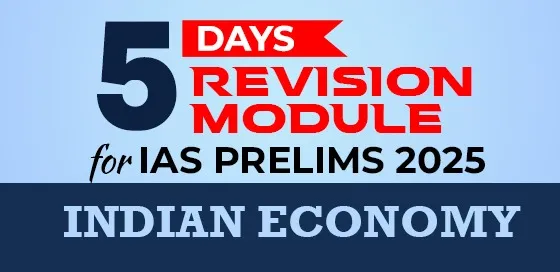GS SCORE COURSESBest UPSC/IAS Coaching Institute in Delhi
We at GS SCORE provide IAS coaching in Delhi. We provide a 1 Year and 2 Year UPSC Classroom Foundation course. This Classroom course is a mix of informative and interactive classroom lectures, comprehensive study material and Test series in line with the demand of the exam. We cater to all the major Optional Subjects in online and offline mode. Modular Courses have always been our strength especially in GS Paper IV and Essay Classes. To provide all round development we provide Prelims, Mains and Optional Test series.


IAS Mains 2025: Ethics Q&A (Test Series)

Public Administration Foundation 2026-27

IAS 2026-27: Geography Optional Foundation



IAS 2026-27: Sociology Optional Foundation


Public Administration Optional Q&A (Test Series) for UPSC 2026-27

Sociology Optional Q&A (Mentorship & Test Series) for UPSC 2026

Geography Optional Q&A (Mentorship & Test Series) for UPSC 2026

History Optional Q&A (Mentorship & Test Series) for UPSC 2026



Political Science Optional Q&A (Mentorship & Test Series) for UPSC 2026

IAS 2026-27: History Optional Foundation


Anthropology Optional Test Series 2025

Public Administration Optional Test Series 2025

Political Science (PSIR) Optional Test Series 2025




NCERT Revision Test Series for UPSC Prelims

IAS 2025: Sociology PYQ +: 25 Days PYQ Practice Programme

IAS 2025: Public Administration PYQ +: 25 Days PYQ Practice Programme

IAS Prelims 2025: Geography Mapping Booster

IAS Prelims 2025: Indian Economy – 5 Days Revision Module





IAS 2025: Target PT - Prelims Classes 2025







IMP - Intensive Mains Program for IAS 2025

IAS 2025: Intensive Integrated Programme (IIP) 2025



ITS - Integrated (Prelims+Mains) Test Series & Mentorship for UPSC 2026

GS Mains Q&A (Mentorship & Test Series) for UPSC 2026


UPSC 2025: Mains Mentorship Program (MMP)



IAS Mains 2025: Ethics Q&A (Test Series)

Public Administration Foundation 2026-27

IAS 2026-27: Geography Optional Foundation



IAS 2026-27: Sociology Optional Foundation


Public Administration Optional Q&A (Test Series) for UPSC 2026-27

Sociology Optional Q&A (Mentorship & Test Series) for UPSC 2026

Geography Optional Q&A (Mentorship & Test Series) for UPSC 2026

History Optional Q&A (Mentorship & Test Series) for UPSC 2026



Political Science Optional Q&A (Mentorship & Test Series) for UPSC 2026

IAS 2026-27: History Optional Foundation


Anthropology Optional Test Series 2025

Public Administration Optional Test Series 2025

Political Science (PSIR) Optional Test Series 2025




NCERT Revision Test Series for UPSC Prelims

IAS 2025: Sociology PYQ +: 25 Days PYQ Practice Programme

IAS 2025: Public Administration PYQ +: 25 Days PYQ Practice Programme

IAS Prelims 2025: Geography Mapping Booster

IAS Prelims 2025: Indian Economy – 5 Days Revision Module





IAS 2025: Target PT - Prelims Classes 2025







IMP - Intensive Mains Program for IAS 2025

IAS 2025: Intensive Integrated Programme (IIP) 2025



ITS - Integrated (Prelims+Mains) Test Series & Mentorship for UPSC 2026

GS Mains Q&A (Mentorship & Test Series) for UPSC 2026


UPSC 2025: Mains Mentorship Program (MMP)




Public Administration Foundation 2026-27

IAS 2026-27: Geography Optional Foundation

IAS 2026-27: Sociology Optional Foundation

IAS 2026-27: History Optional Foundation

IAS 2025: Sociology PYQ +: 25 Days PYQ Practice Programme

IAS 2025: Public Administration PYQ +: 25 Days PYQ Practice Programme







Public Administration Foundation 2026-27

IAS 2026-27: Geography Optional Foundation

IAS 2026-27: Sociology Optional Foundation

IAS 2026-27: History Optional Foundation

IAS 2025: Sociology PYQ +: 25 Days PYQ Practice Programme

IAS 2025: Public Administration PYQ +: 25 Days PYQ Practice Programme







IAS Mains 2025: Ethics Q&A (Test Series)


Public Administration Optional Q&A (Test Series) for UPSC 2026-27

Sociology Optional Q&A (Mentorship & Test Series) for UPSC 2026

Geography Optional Q&A (Mentorship & Test Series) for UPSC 2026

History Optional Q&A (Mentorship & Test Series) for UPSC 2026


Political Science Optional Q&A (Mentorship & Test Series) for UPSC 2026


Anthropology Optional Test Series 2025

Public Administration Optional Test Series 2025

Political Science (PSIR) Optional Test Series 2025




NCERT Revision Test Series for UPSC Prelims

IAS Prelims 2025: Geography Mapping Booster

IAS Prelims 2025: Indian Economy – 5 Days Revision Module













ITS - Integrated (Prelims+Mains) Test Series & Mentorship for UPSC 2026

GS Mains Q&A (Mentorship & Test Series) for UPSC 2026

UPSC 2025: Mains Mentorship Program (MMP)



IAS Mains 2025: Ethics Q&A (Test Series)


Public Administration Optional Q&A (Test Series) for UPSC 2026-27

Sociology Optional Q&A (Mentorship & Test Series) for UPSC 2026

Geography Optional Q&A (Mentorship & Test Series) for UPSC 2026

History Optional Q&A (Mentorship & Test Series) for UPSC 2026


Political Science Optional Q&A (Mentorship & Test Series) for UPSC 2026


Anthropology Optional Test Series 2025

Public Administration Optional Test Series 2025

Political Science (PSIR) Optional Test Series 2025




NCERT Revision Test Series for UPSC Prelims

IAS Prelims 2025: Geography Mapping Booster

IAS Prelims 2025: Indian Economy – 5 Days Revision Module













ITS - Integrated (Prelims+Mains) Test Series & Mentorship for UPSC 2026

GS Mains Q&A (Mentorship & Test Series) for UPSC 2026

UPSC 2025: Mains Mentorship Program (MMP)


UPSC 2025: Mains Mentorship Program (MMP)







IAS 2025: Target PT - Prelims Classes 2025

IMP - Intensive Mains Program for IAS 2025

IAS 2025: Intensive Integrated Programme (IIP) 2025



UPSC 2025: Mains Mentorship Program (MMP)







IAS 2025: Target PT - Prelims Classes 2025

IMP - Intensive Mains Program for IAS 2025

IAS 2025: Intensive Integrated Programme (IIP) 2025




Latest Updates
The aspirants need to supplement their current affairs preparation with Daily, Weekly or Monthly Current Affairs compilations such as GS Analyst Monthly Current Affairs Magazines. Our All India Marking system creates a competitive atmosphere for prelims. To boost one's performance by a huge margin, it is advised that students go by the previous years' current affairs and revise them properly. This should be supplemented with previous years' questions.
Loading...


Topper’s Corner
Our toppers set new milestones carrying our baton of glorious legacy of successful results. Check out our Topper’s Interviews, Copies, General Studies and Essay Copies to see the hard work we put in for our students.





